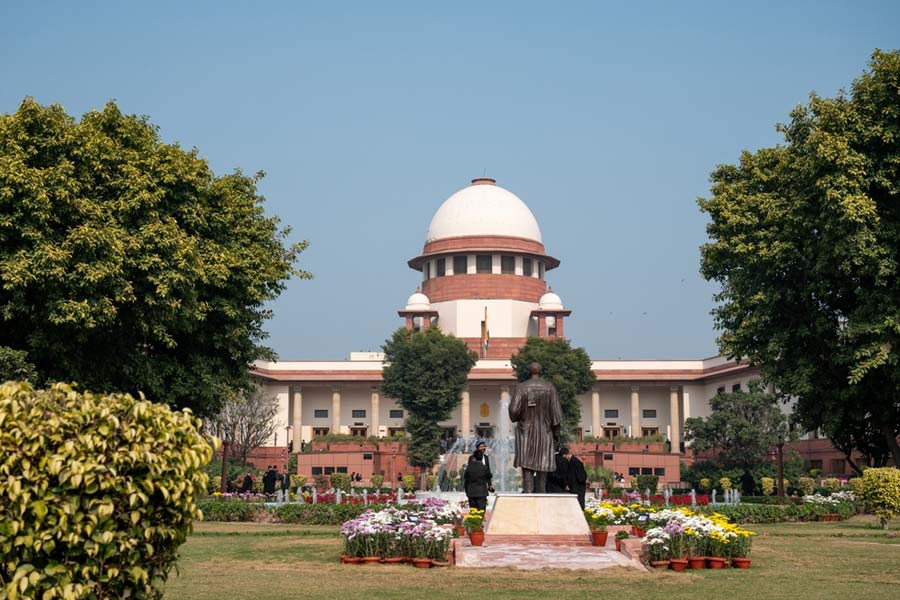The Supreme Court on Tuesday sought the response of the Uttar Pradesh and Uttarakhand governments on the alleged religious profiling of owners of shops and dhabas along the Kanwar Yatra route despite an apex court order last year barring such a practice.
A bench of Justices M.M. Sundresh and N. Kotiswar Singh issued notices to the
two states on an application filed by Delhi University professor Apporvanand Jha and journalist Aakar Patel and posted the matter for further hearing to July 22.
Both governments have asked dhabas and shops along the Kanwar Yatra route to display registered names of their facilities on their boards along with a special
QR code allotted to them, which reveals the names of the owners and, therefore, there religion.
The move tries to bypass the stay issued by the apex court on July 22 last year in response to a similar plea by Jha and Patel, and extended by another order dated July 26.
“...The Kanwar Yatra is scheduled between July 11 and August 9 this year. In this backdrop, and despite the above orders, it is now apparent that the state of Uttar Pradesh and other authorities are circumventing the stay by reintroducing the same directive stating that, ‘As in the previous year, the name of the operator should be clearly displayed at each shop’ under the garb of public safety and maintenance of law and order,” the petitioners submitted.
“The new measures mandate the display of QR codes on all eateries along the Kanwar route, which reveal the names and identities of the owners, thereby achieving the same discriminatory profiling that was previously stayed by this Hon’ble Court,” they added.
The petitioners cited a media release issued by the Uttar Pradesh government “that all eateries on the Kanwar route are required to display QR codes that allow customers to access ownership details”.
“These steps effectively serve the same unconstitutional end through digital means, in wilful disobedience of this Hon’ble Court’s directions,” the petitioners said.
The petitioners also referred to reports and media interviews of AIMIM leader Asaduddin Owaisi, alleging alarming instances of coercion, Aadhaar verification and alleged harassment to ascertain the identity of the shop owners.
According to the application, the directive asking stall owners to reveal religious and caste identities under “lawful licence requirements” breaches the right to privacy of the shop, dhaba or restaurant owners. “Equating this requirement to display a normal-sized licence with the directive to display name of owner, manager and other employees on billboards outside, or to not give eateries names which do not reflect
the religious identity of the owner are de hors (outside) the licence requirements,” the plea states.
It added that the “vague” directive deliberately mixed up the licensing requirements with other “unlawful demand” to display religious identity”.

